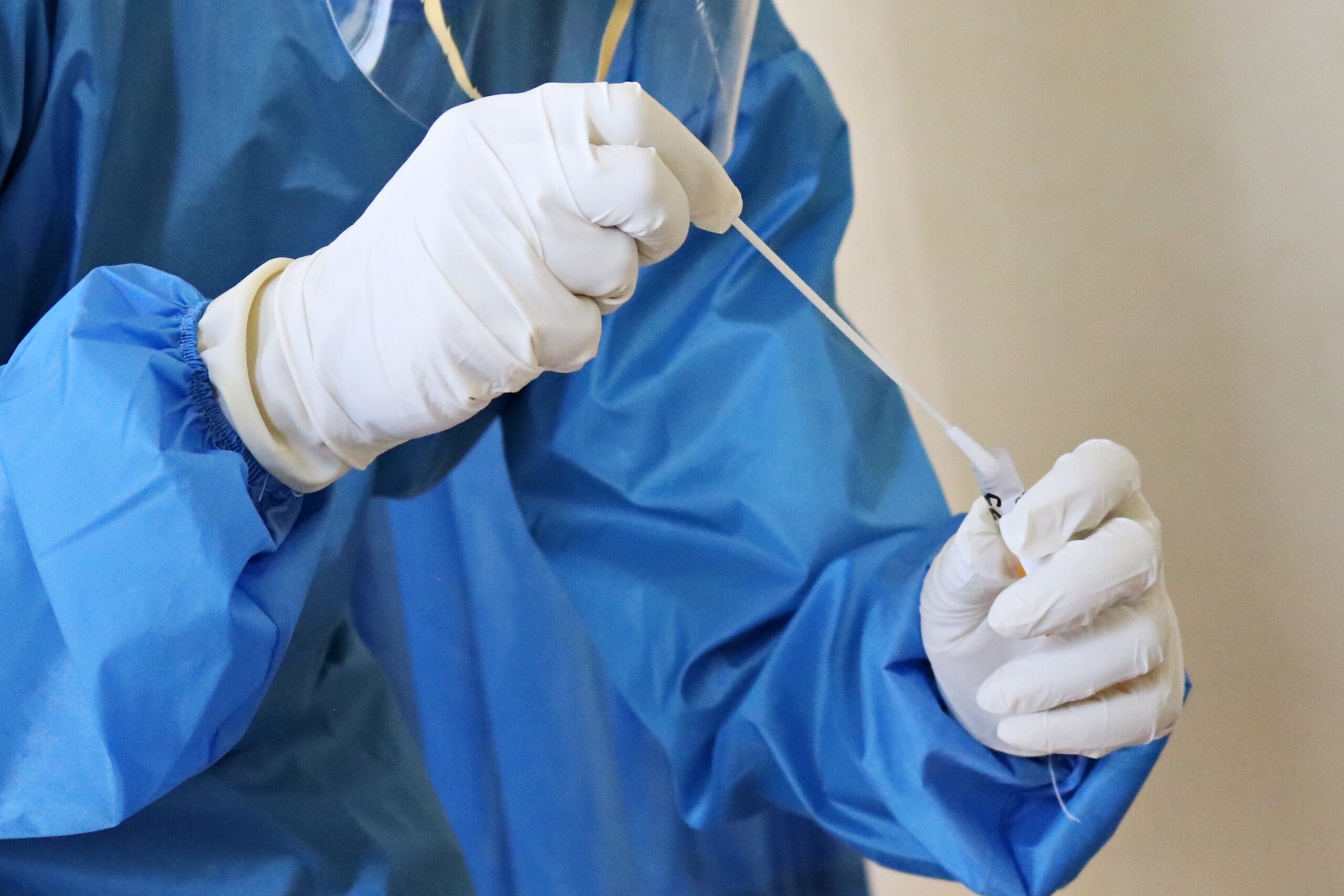Will the nation’s Covid-19 testing be able to keep up with Aucklanders leaving the city tomorrow, and much of the country spending New Year’s Eve in ‘Orange’?
Rapid antigen tests will allow non-symptomatic people to get tested at pharmacies, and unvaccinated travellers will need to schedule tests before domestic flights.
The SMC asked experts about New Zealand’s testing capacity.
Terry Taylor, President, New Zealand Institute of Medical Laboratory Science, comments:
“As the provincial and international borders free up there is the expectation that this will lead to widespread community spread throughout the motu. There are two vital weapons in the fight to mitigate the risk, vaccination and reliable, accurate surveillance and diagnostic testing. Aotearoa New Zealand is fortunate to tick both boxes as we move into the well-deserved summer holidays.
“The diagnostic testing comes with a caveat as we head into the summer break. The testing capacity in our large urban hospital and community facilities is being increased all the time. This is all part of the planning to increase our daily capacity to around the 50,000 – 60,000 mark. This is on top of the 200,000 other laboratory tests performed daily. The regional holiday hot spots around the motu do not have the capacity for large scale testing but will be available for testing acute cases. This means that the majority of the COVID PCR testing will be shipped to a larger nearby laboratory that has the capacity. In most cases this travel time will end up adding another day to the turnaround time. It must be remembered that these regional areas do not have the general medical capacity to deal with large numbers of acute cases and that is something everyone who travels to these regional areas needs to be aware of.
“Those people who are required to get a negative surveillance test for domestic travel will, from the 15th December, have the option of a Rapid Antigen Test (RAT) from selected pharmacies. RAT testing is not being used for symptomatic cases and those people still need to get a nasopharyngeal COVID PCR test.
“Our large public hospital laboratories are open 24 hours and 7 days a week, but some of the commercial laboratories providing pre-departure testing will have reduced hours over the holiday period. Be aware that if you are going to a remote area before your international flight, the timeframe in getting a sample to one of the commercial providers needs to be factored in.
“Finally, spare a thought for the group of amazing and dedicated health professionals who are involved in all aspects of the COVID testing response. This group have been at the forefront of the pandemic response for 20 months and the past four months have been exceptionally trying, particularly for the Northern laboratories. Our Christmas wish is for everyone to follow the rules and think of those who are working hard so we can all have the freedom of a relaxing and safe holiday.”
Conflict of interest statement: “I work as a registered medical laboratory scientist for Southern Community Laboratories in Dunedin which provides both publicly funded and commercial laboratory services. The NZIMLS work is voluntary and independent of my employment and is covered by a code of ethics and disclosure clause.”
Dr Anja Werno, Chief of Pathology & Clinical Microbiologist & Virologist, Canterbury Health Labs; and Clinical Senior Lecturer, University of Canterbury, comments:
“With the Auckland border opening, more introduction of positive cases to the South Island is highly likely. But because of the increase in vaccination rate, case numbers in Auckland appear to be stabilising or even decreasing. The other thing of course is that summer tends to help with keeping numbers down because people are doing more outside activities rather than being stuck in the same room for hours on end.
“In terms of testing capacity, every lab has probably got their maximum capacity sorted by now. We know how many tests we can do without breaking people. Most laboratories have recruited quite a large number of extra staff, and have been able to train them up over the past few weeks.
“So I believe that whether Aucklanders are going to share some of the virus or not, it shouldn’t really influence what’s happening in laboratories too much. At the moment we’re testing several thousand tests a day, and most of them are negative. What I think will happen is we’ll continue doing thousands of tests, the positivity rate will just increase.
“Whether these rapid antigen tests are going to be used effectively is still to be determined, it’s a bit of a moving feast I believe. People who use these tests may refrain from going to get a nasopharyngeal swab test. So in theory it should have some impact, but how big that impact will be is impossible to say at this point.
“I think the labs will be able to cope. Canterbury Health Labs has been proactive over the last 12-18 months in securing a big cohort of staff to do the tests. We also recently introduced a two-armed decapper robot that can take the caps off all the specimens that are coming in. It makes a huge difference because the motion of unscrewing a cap is very repetitive, and can lead to repetitive strain injury.
“It’s important to remember that testing is only one of the tools we have to keep tabs on Covid. Worldwide the main tool to have a degree of control over the case numbers and severity of cases, is vaccination. It’s probably not wise for people to throw their masks away at this point, and it’s good to keep sticking to practical advice: like holding big meetings outdoors – not indoors – and using masks.”
No conflict of interest.
